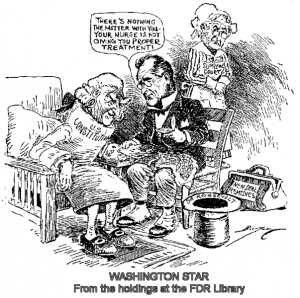Sticking It To The Constitution
 Yesterday, I spoke on a panel on the occasion of Constitution Day here at Marquette University. What follows is a copy of my remarks:
Yesterday, I spoke on a panel on the occasion of Constitution Day here at Marquette University. What follows is a copy of my remarks:
Today’s panel asks, “What does it mean to stick to the Constitution?” This is another way of asking how we – you, me judges, lawmakers – should go about interpreting the meaning of the constitutional text.
Today, this interpretative question is often presented as a binary debate between either originalism or a “living Constitution.”
My argument today is that this clear dichotomy is nothing more than an illusion. There is not a choice between two stark extremes. This is because, in practice, most originalists and advocates of a living Constitution tend to meet in the middle.
So this debate between originalism and the living Constitution is often very loud and very energetic, but it tends to distract us from the real question. Both sides of the debate behave as if the original intent of the Framers of the Constitution is important. They argue very heatedly over how much weight to give to this original intent, in comparison to other factors such as changing circumstances or contrary precedent.


